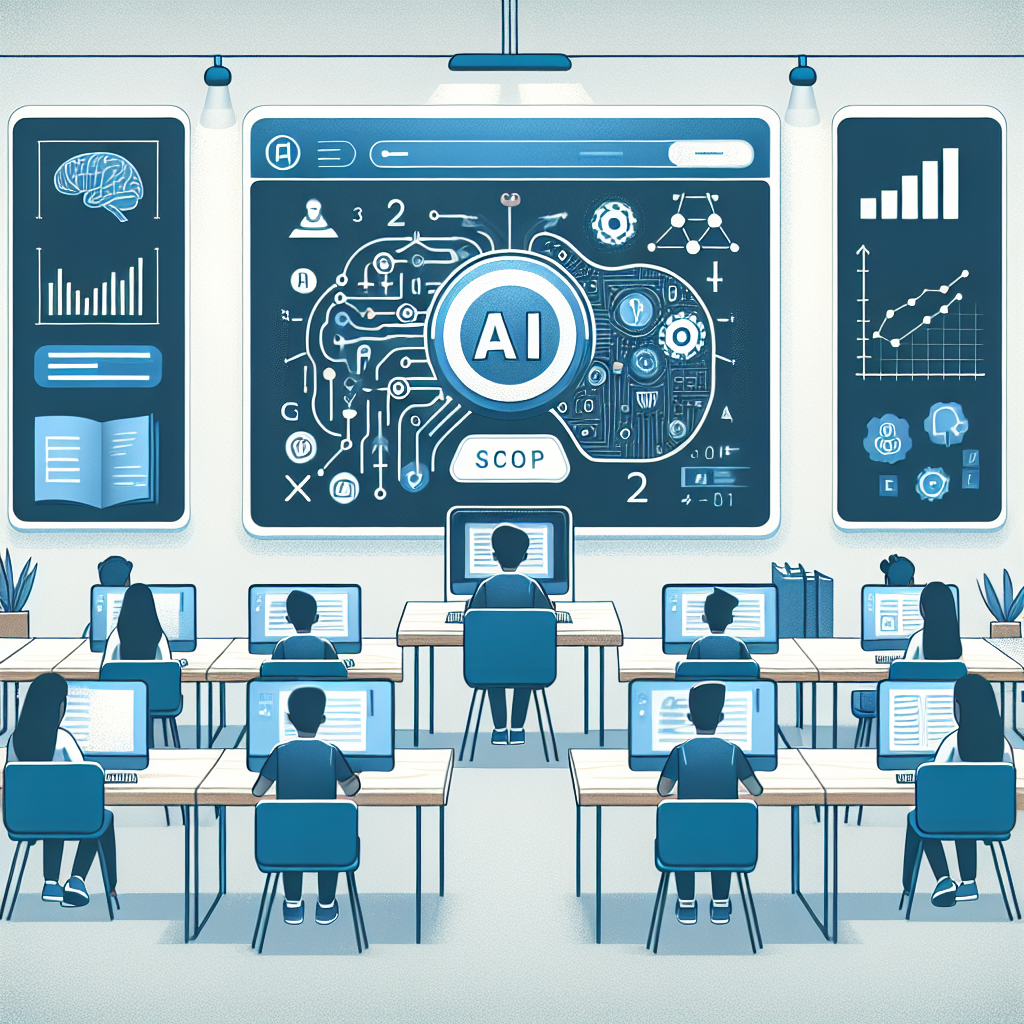Enhancing Education with AI Tools for Student Assessment
In recent years, the use of artificial intelligence (AI) tools in various industries has been on the rise, and education is no exception. AI tools have the potential to revolutionize the way students are assessed, providing more accurate and personalized feedback to help them excel in their studies. In this article, we will explore how AI tools can enhance education by improving student assessment and learning outcomes.
AI Tools for Student Assessment
AI tools can be used in a variety of ways to assess student performance. One of the most common applications of AI in education is in automated grading systems. These systems use machine learning algorithms to analyze and score student assignments, exams, and other assessments. This not only saves teachers valuable time but also provides more consistent and unbiased feedback to students.
AI tools can also be used to track student progress over time. By analyzing data from various assessments and assignments, AI algorithms can identify areas where students are struggling and provide targeted interventions to help them improve. This personalized feedback can help students stay on track and reach their full potential.
Furthermore, AI tools can be used to create adaptive learning environments. By analyzing student performance data in real-time, AI algorithms can adjust the pace and difficulty of lessons to meet the individual needs of each student. This can help students stay engaged and motivated, leading to better learning outcomes.
Benefits of AI Tools for Student Assessment
There are several benefits to using AI tools for student assessment in education. Some of the key advantages include:
1. Personalized feedback: AI tools can provide personalized feedback to students based on their individual strengths and weaknesses. This can help students improve their performance and achieve better learning outcomes.
2. Time-saving: Automated grading systems can save teachers valuable time by grading assignments and exams quickly and accurately. This allows teachers to focus on other tasks, such as lesson planning and student support.
3. Consistency: AI tools provide more consistent feedback to students compared to human grading, which can be subjective and prone to bias. This ensures that all students receive fair and accurate assessments.
4. Data-driven insights: AI tools can analyze large amounts of student performance data to identify trends and patterns that may not be apparent to human teachers. This can help educators make more informed decisions about how to support student learning.
5. Adaptive learning: AI tools can create adaptive learning environments that adjust to the individual needs of each student. This can help students stay engaged and motivated, leading to better learning outcomes.
FAQs
1. How do AI tools assess student performance?
AI tools assess student performance by analyzing data from various assessments and assignments. Machine learning algorithms are used to identify patterns and trends in student performance, which can then be used to provide personalized feedback and interventions.
2. Are AI tools accurate in grading student assignments?
Yes, AI tools are highly accurate in grading student assignments. Automated grading systems use machine learning algorithms to analyze student work and assign scores based on predefined criteria. These systems have been shown to be as accurate as human graders, if not more so.
3. Can AI tools replace human teachers in the classroom?
AI tools are not meant to replace human teachers in the classroom. Instead, they are designed to support teachers by providing valuable insights and feedback to help improve student learning outcomes. Teachers play a crucial role in guiding and supporting students, which AI tools cannot replicate.
4. How can schools and educators implement AI tools for student assessment?
Schools and educators can implement AI tools for student assessment by investing in the necessary technology and training for teachers. It is important to ensure that educators are comfortable using AI tools and understand how to interpret the data they provide. Collaboration between teachers and AI tools can lead to more effective assessment practices and better learning outcomes for students.
In conclusion, AI tools have the potential to enhance education by improving student assessment and learning outcomes. By providing personalized feedback, saving time, ensuring consistency, and creating adaptive learning environments, AI tools can help students reach their full potential. It is important for schools and educators to embrace AI tools and incorporate them into their teaching practices to support student success.

